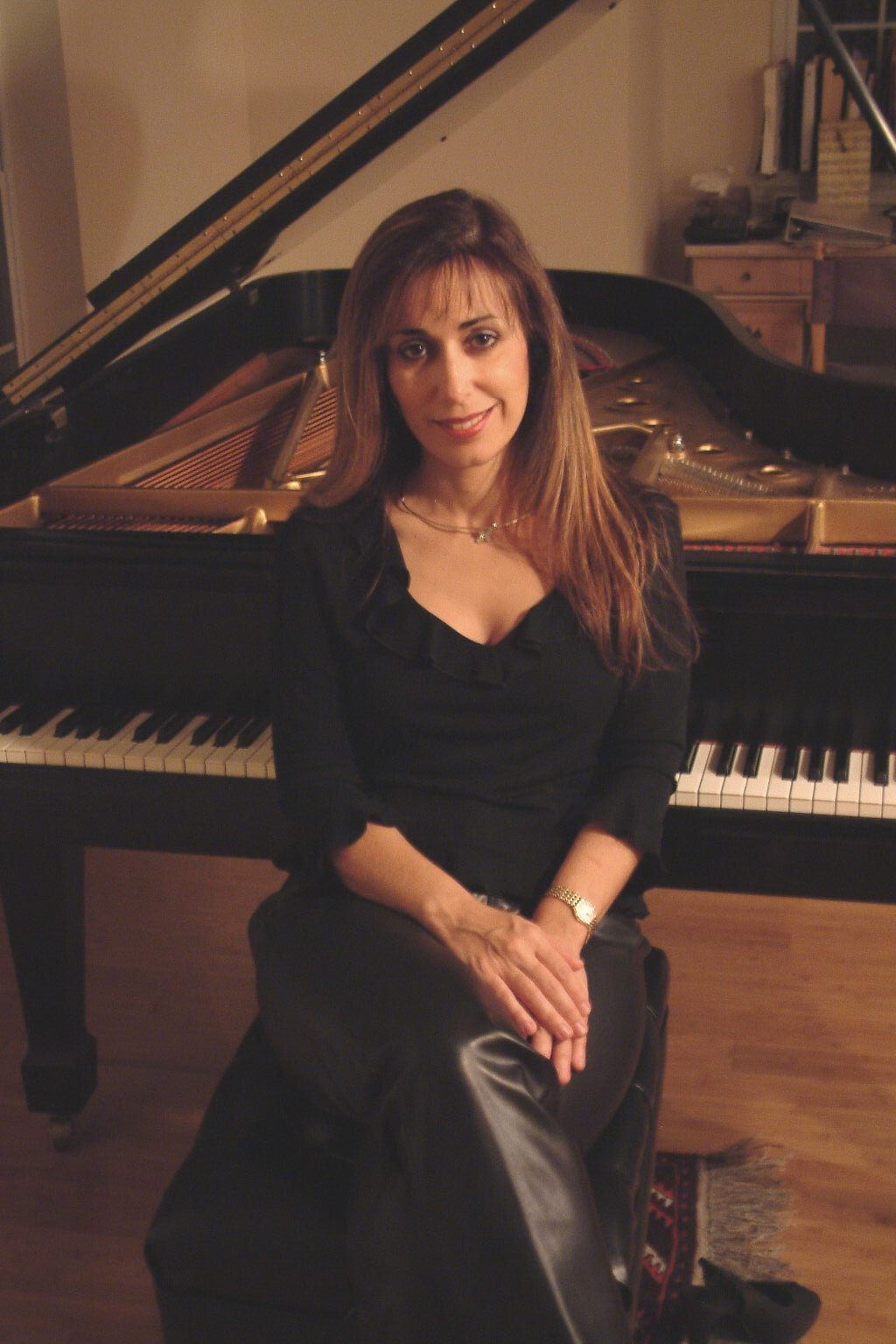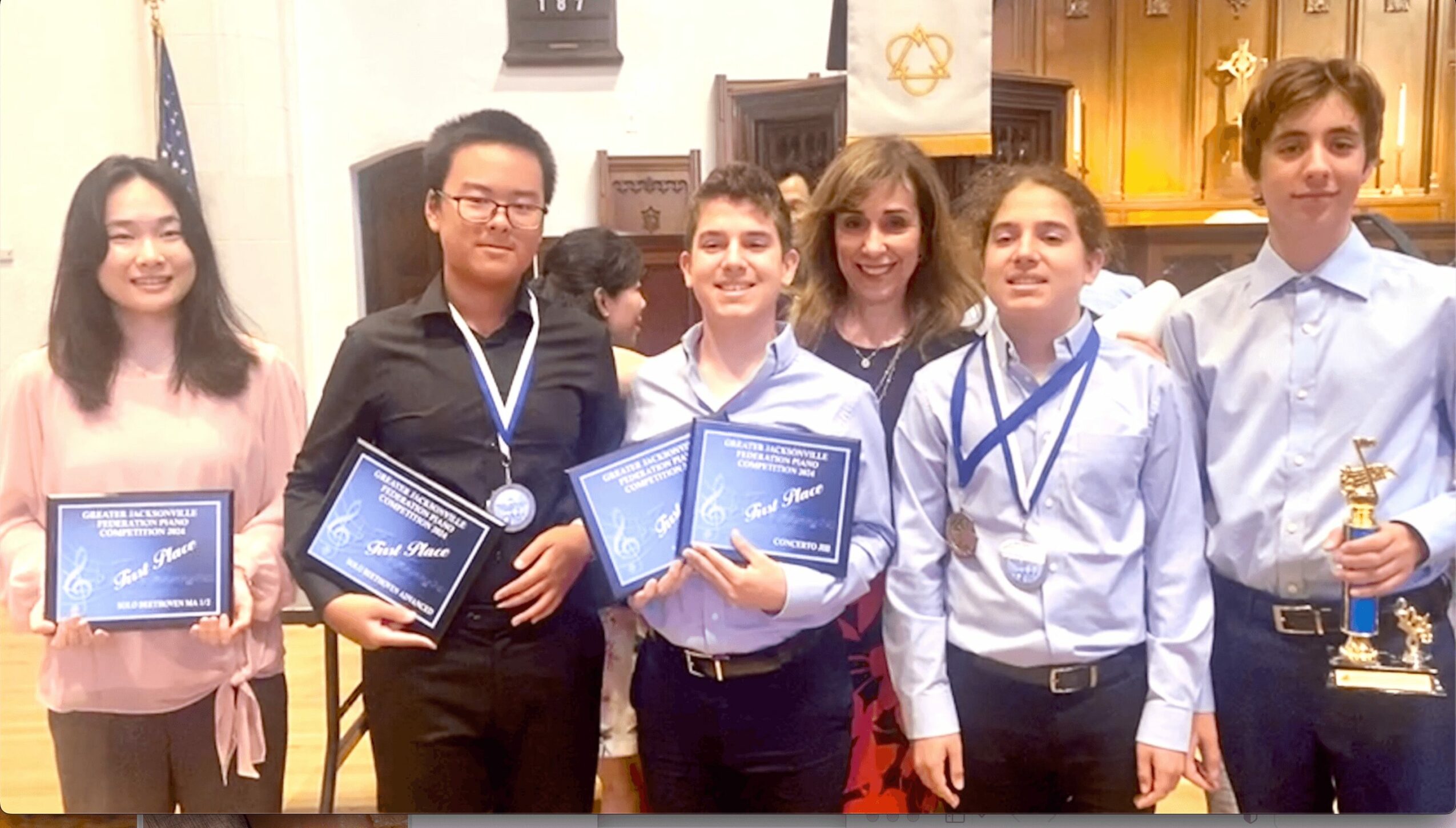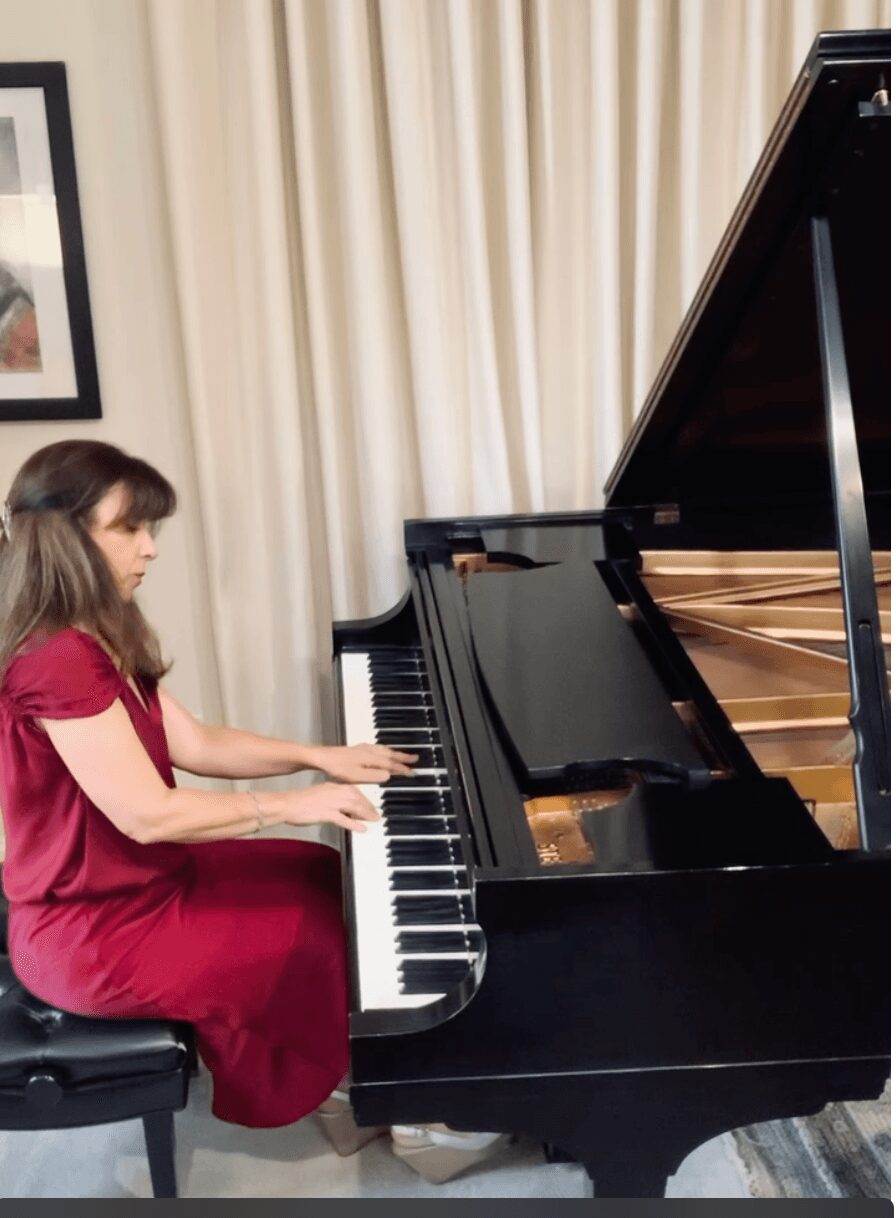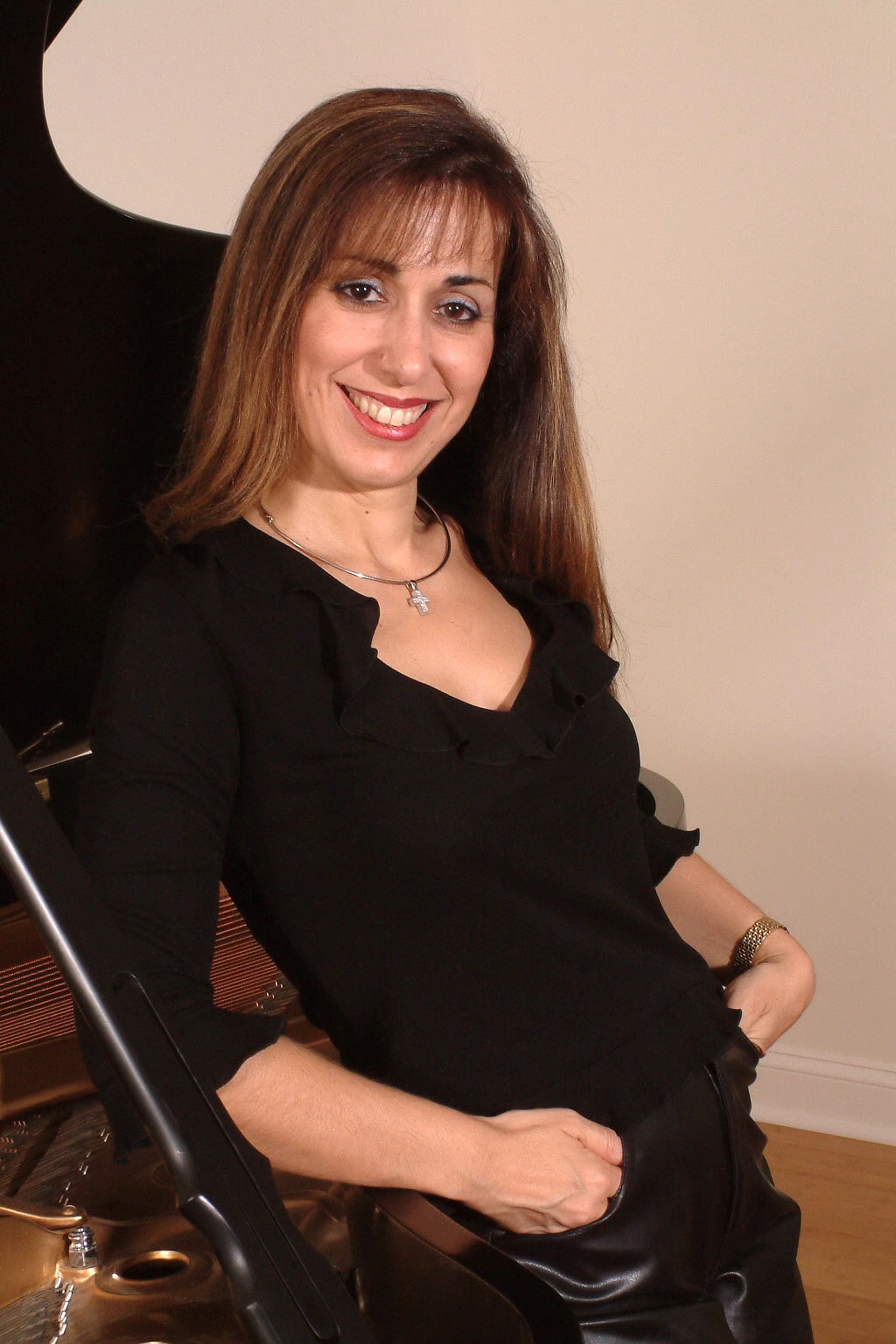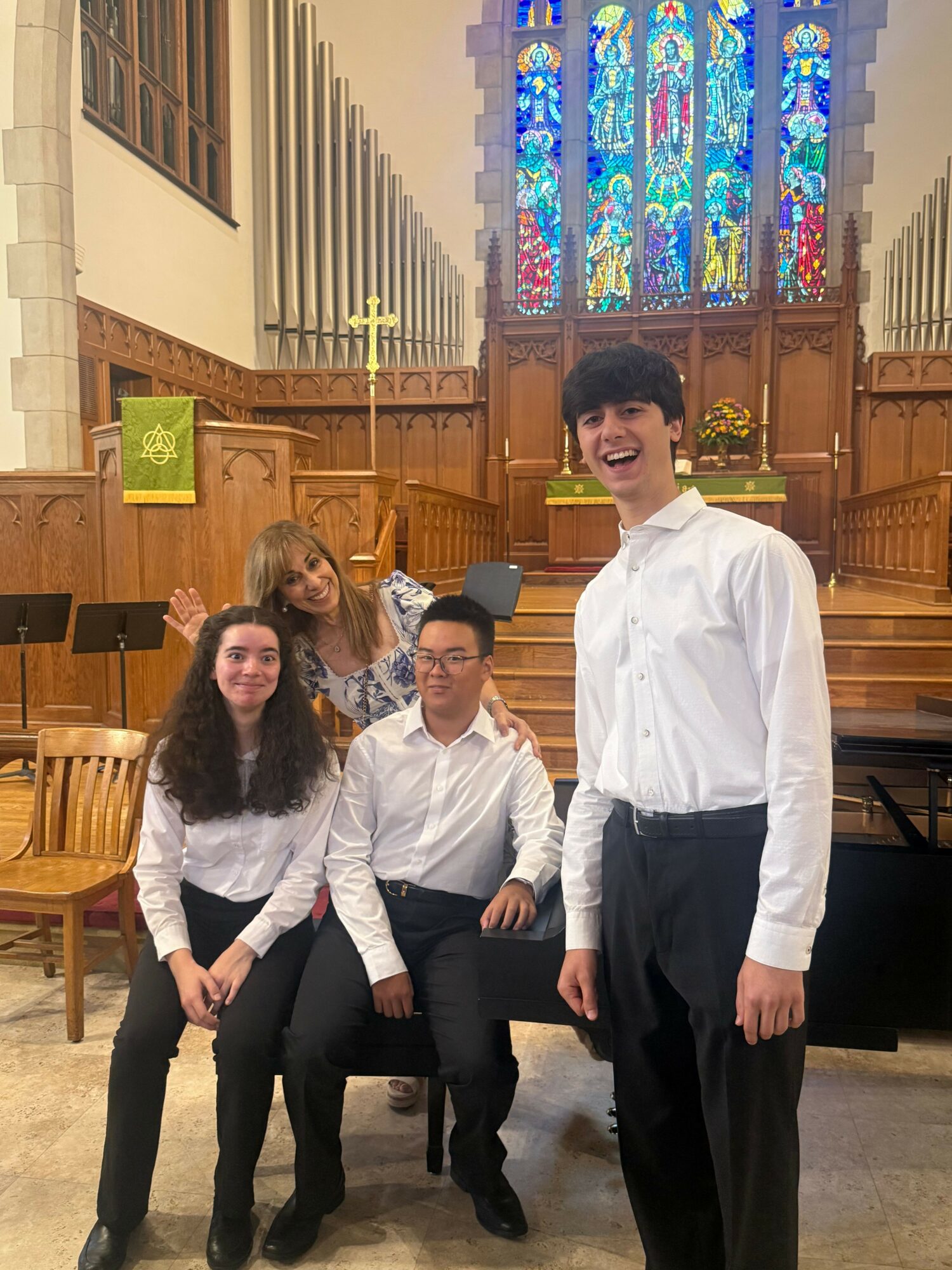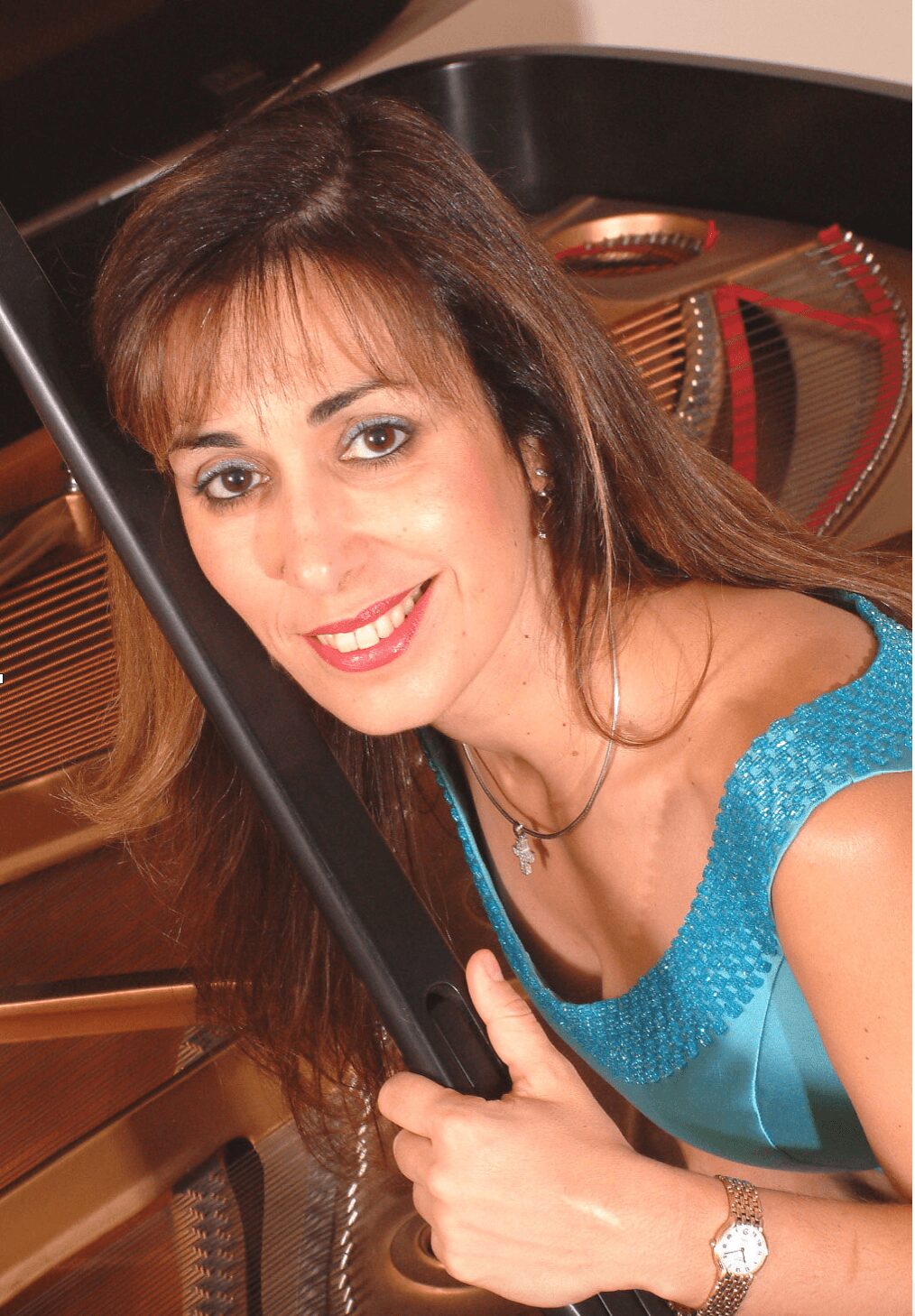

Today we’d like to introduce you to Aida Mechetti.
Hi Aida, we’re thrilled to have a chance to learn your story today. So, before we get into specifics, maybe you can briefly walk us through how you got to where you are today?
I am originally from Brazil and came to the United States over 40 years ago. What was meant to be just a few years of study at our dream school turned into a lifelong journey and a new home.
I began playing the piano at the age of six and received a rigorous musical education from the start. By the time I was eight, I had joined the Magda Tagliaferro Conservatory, where I completed the equivalent of an undergraduate music curriculum. I studied in Paris and participated in several competitions, which deepened my love for performance and artistry.
But then it was time to move on to our next stage of life. My husband, an orchestra conductor, and I decided to take a leap of faith and audition for Juilliard in New York—without knowing if either of us would be accepted. To our great joy, we were both admitted to the prestigious school.
After completing our studies, we lived in several wonderful cities across the country, which gave me opportunities to perform, teach, and continue learning. In Washington, D.C., I earned my Master’s degree at Catholic University. While focusing primarily on performing I also began to discover my passion for teaching and the importance of it into the development of a musician.
One of my deepest passions has always been chamber music. Over the years, I have started chamber music programs in cities such as Syracuse, Spokane, and later Jacksonville. These initiatives reached hundreds of students and helped them develop ensemble skills, musical sensitivity, and the joy of making music together.
In 2000, I moved to Jacksonville when my husband was appointed Music Director of the Jacksonville Symphony. Since then, my focus has shifted increasingly toward teaching and nurturing young musicians, helping them grow into thoughtful pianists who can express themselves fully through music.
That same year, I became an adjunct professor at the University of North Florida, where I introduced a chamber music course. In 2005, I founded the Jacksonville Music Conservatory, supported by the Steinway Society, to provide comprehensive musical training rooted in European conservatory traditions. Later, I also served as chair of the piano department at the First Coast Community Music School at Florida State College and created the Chamber Music Artist Program for advanced students. Currently, I serve as a teacher at the Prelude Chamber Music Festival, a great Summer Chamber Music program in town.
Today, I teach in my private studio, with my two Steinway grands. I focus primarily on intermediate and advanced students, with each admission requiring an interview and audition to ensure readiness. I also enjoy teaching adults, finding it deeply rewarding to witness their transformation into expressive musicians.
My students are constantly preparing for recitals, competitions or college auditions. Among the colleges my students were admitted includes Princeton, Northwestern, Duke, Columbia, Yale, UF and others.
This year I had several winners participating in local and international competitions including students performing at Carnegie Hall, Tokyo hall, Vienna Ehrbar Hall and I am so proud of what we have been achieving together.
Would you say it’s been a smooth road, and if not what are some of the biggest challenges you’ve faced along the way?
As a musician and piano teacher the challenges are always great.
Here are some:
Moving to the United States brought challenges—at first, I barely spoke English. At Juilliard, I lived in the world of music, where a universal language carried me through. It wasn’t until we lived in Spokane that I began to feel comfortable speaking English daily.
Another ongoing challenge for me as a piano teacher is balancing the demands of young students’ busy schedules with the consistent practice time needed for true progress. The challenge is being able to demonstrate to each student how they can be as efficient as possible during their practice. My lessons take longer than a normal lesson time, around 1.5 hours and I use a good portion of it teaching my students how to practice at home. Eventually, they will learn that good discipline and mental work that comes with practicing the piano can also help them with their school work.
In my everyday teaching I am constantly challenged with individual difficulties. Each person has their own responses and can vary greatly, so I am always adapting my technique and approach according to their needs, for example when working with a young or inexperienced student compared to a mature musician or adult player. I find this fascinating and a wonderful challenge and I feel this experience even makes me a better musician.
Yet the rewards are countless. Through decades of performance, teaching, and mentorship, my mission has remained the same: to inspire young musicians, nurture their talent, and guide them from piano players into skilled, expressive, mature artists.
Can you tell our readers more about what you do and what you think sets you apart from others?
Philosophy of Teaching and what I am specialized in.
I believe that to teach piano effectively, one must deeply understand the instrument’s capabilities and limitations, the mysteries of music-making, and the coordination and control of your movements. My approach combines technical problem-solving with creative exercises so they can bring the composer’s intentions to life.
For me, teaching is much more than correcting notes—it is about shaping artists. I emphasize the importance of hand coordination, body awareness, and the subtle details of movement that make all the difference in tone and expression allowing musicians to perform with precision, control, and musicality.
I encourage “mind–body practice,” where students learn to control every part of the piano-playing mechanism—from shoulders and arms to hands and fingers—so they can produce the sound they imagine and to interpret the composer’s markings. The piano can have infinite capabilities if you know how to use it.
A good teacher should experience rigorous long hours of practice and understand how to fix different kinds of technical issues and be able to explain to the students how to solve them.
Teachers should also experience the tension, anxieties and excitement of public performance and know how to cope with them.
These experiences are what shape an artist and allow a teacher to guide students through both the technical and emotional aspects of music.
My love for practicing and problem-solving has given me tools to explain technical issues clearly and create exercises tailored to each student. Every individual is different, whether a child, an advanced young pianist, or an adult beginner. Teaching means adapting to these differences and guiding each one on their own musical path.
I feel incredibly blessed to have worked with such dedicated students and families. My greatest hope is that I have not only helped shape musicians but also contributed to raising thoughtful citizens and engaged members of the community.
Music has been my life’s work, and teaching remains my greatest joy. Nothing is more meaningful than helping others find their voice through the piano and watching them “go beyond the notes” to truly make music their own.
Beyond that, I hope they carry with them the discipline, perseverance, and artistry that music instills for the rest of their lives into any whatever field they decide to pursue.
Can you share something surprising about yourself?
Sorry, I can’t think of anything yet…
Contact Info:
- Website: https://www.aidaribeiro.com
- Instagram: aidaribeiropianostudio, aidamechetti
- Facebook: Aida Ribeiro Mechetti
- Youtube: Aida Ribeiro Piano Studio
